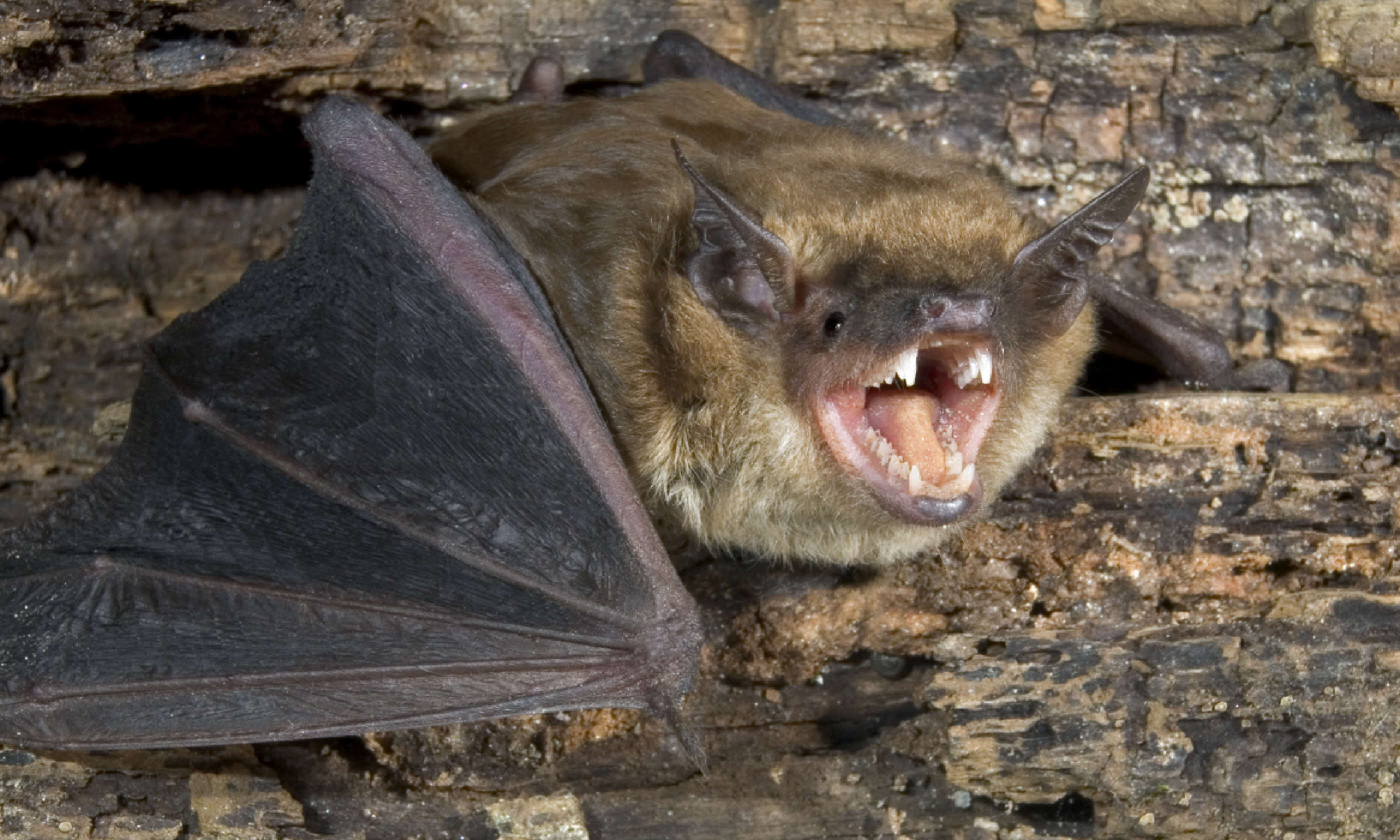
What to do when you're bitten by an animal with rabies
Our resident travel doctor assesses a real-life case study of a rabies emergency – what went right, what went wrong and what you need to know if it happens to you...
Case study: Rabies in Macedonia?
Lyn Hughes, Wanderlust founder, on her rabies emergency:
It all started with a sausage. At a group lunch, and sitting next to the town mayor, I’d been served a wild boar sausage but – as a vegetarian, and trying to be polite in front of a local dignitary – I wrapped it in a napkin and slipped it in my pocket. A couple of hours later I threw it away at a service station, however, a large dog came up and bit my hand – he could probably smell the sausage.
The bite could have been worse, but I was dripping blood and my skin was broken in several other places. I rushed to the nearest town, where there was a small hospital with few facilities. A doctor stitched the wound – he said he wouldn’t normally do so but that it was very deep. He advised me to get it checked when I was back in Skopje.
Three days later I went to a clinic in the capital. They took the bandage off and said the wound shouldn’t have been stitched, regardless of its depth, and that it was showing signs of infection. They also said that, as rabies was prevalent in Macedonia, I needed to start a course of rabies treatment as soon as possible. (They asked whether the dog had a tag in its ear – indicating that it had been vaccinated – but I hadn’t noticed.) They removed the stitches and cleaned the wound before I dashed to the airport.
Arriving home on Friday evening, I was worried about getting prompt NHS treatment. Fortunately, a local travel health clinic – the World Travel Clinic in Windsor – offered to see me at 7.30am, Saturday to give me my first vaccine. Public Health England advised me to also have rabies immunoglobulin (RIG). I had to drive to a hospital further away to pick it up; the local travel health clinic then administered it (eight jabs in my thighs!), along with a tetanus jab. All the jabs were free.
Dr Jane says…
This just goes to show that even the most experienced travellers can find themselves in unfortunate situations. Lyn survived to tell the tale, but the situation could have been handled better. Here’s what should have happened…
Pre-travel
First of all, I wonder why a traveller as intrepid as Lyn hadn’t arranged rabies cover before departure? Maybe she had, as recent evidence has emerged that most people will be protected for life if they have had a complete pre-travel course of rabies vaccine (ie three doses, spaced over a month, plus a booster at a year).
As ever with new information though, the consensus is slow to change and clinics vary in the advice they give. Even if the traveller has this protection, two further post-bite jabs are advised, although the RIG isn’t necessary.
In short, research your destination well in advance (preferably two months before) to determine whether rabies immunisation is a prudent idea.
Immediate first aid
The incubation period for rabies varies with the severity of the bite, the distance the bite is from the brain and the amount of virus inoculated into the wound. Good first aid improves chances of killing the virus before it can migrate into a nerve. Once the virus has crept along the nerve and reached the brain (when symptoms start) no treatment is effective.
The first aid technique, which should have been carried out immediately, is to wash the bite wound vigorously for five minutes under running water, with plenty of soap if possible, scrubbing if you can. It can also be flooded with whisky or other spirits. Good first aid is difficult to do to yourself because it hurts – perhaps have a slug of that whisky first.
Medical help
It seems the first clinic Lyn visited didn’t clean the wound properly, and they should not have stitched it. Stitches make infection more likely. Bacterial wound infection is very common after animal bites so some clinics give a course of antibiotic capsules (eg co-amoxiclav).
The usual advice after a dog bite in a region with a rabies risk is to start post-bite jabs as soon as possible. Unless the bite is severe and on the face or head there is time to travel to a clinic that has the vaccine to start the course. Those who haven’t been immunised before travel need five doses of vaccine given over a month plus RIG. A tetanus jab is also a good idea. Generally pre-travel cover reduces the time pressure to get the jabs done.
Post-trip follow up
It is crucial to complete any course of medication on getting home. It is helpful to carry details of the vaccines you have been given (preferably keep the packet insert for the vial) and the exact date each was received.
Post-exposure jabs should be available free from a British GP but it can be difficult getting the vaccine late on a Friday or at the weekend (it is usually posted to a GP surgery). Some bitten travellers may elect to pay for treatment to start at a private travel clinic.
Private clinics are likely to charge a consultation fee and may charge for the vaccine too. Generally they don’t keep supplies of RIG – hence Lyn having to drive elsewhere to collect it. However, with a bite on the hand (or leg), time is on your side and a delay of a few days is unlikely to be significant. If RIG is given it needs to be administered with the first dose of vaccine.
Scars after bites (and any other wound) take a surprising length of time – six months or so – to fade from purple through red to almost normal skin tones.
 Brown bat
Brown bat
Rabies treatment timeline
0-5mins: Clean the wound thoroughly; if bleeding continues, apply a clean piece of cloth and secure it in place. Pressure, and elevating the bitten part, should stem the bleeding.
10mins-1hr: Find out about local clinics; get a clinician to assess the wound but don’t allow the wound to be stitched.
1-72hrs: Arrange for post-bite injections; you may need to travel to a capital city for this. The closer the bite is to the brain, the more urgent the need for the injections. You may also need antibiotics to guard against wound infection and a tetanus booster.
72hrs+: Ensure you complete the post bite treatment. If you have travelled unimmunised you’ll need five jabs over a month plus RIG with the first dose. If pre-immunised, just two jabs are given three days apart. Note, your travel insurer may not be impressed if you file a claim and it transpires you were travelling unimmunised.

